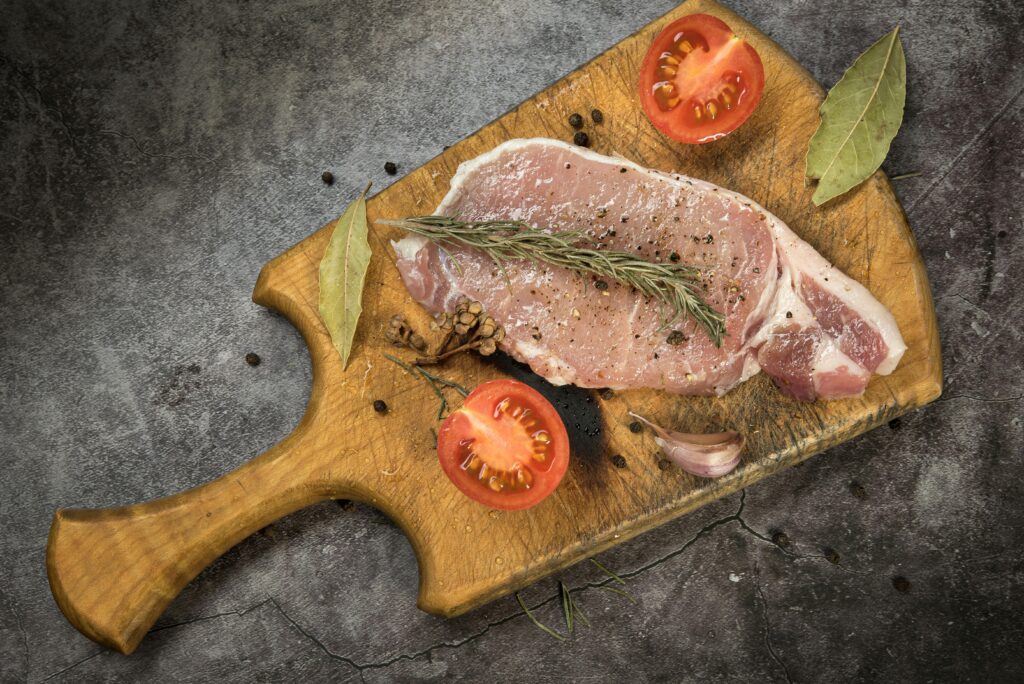
Marinating meat is a simple yet effective technique for tenderizing and infusing flavor. Here’s a guide to get you started:
Ingredients:
- Acid: The key component of a marinade is an acidic element that helps tenderize the meat. This can be citrus juice (lemon, lime, orange), vinegar (wine, balsamic, apple cider), yogurt, buttermilk, or even whey.
- Aromatics: Aromatics add depth and complexity of flavor to the marinade. Common choices include garlic, ginger, onion, shallots, chilies, herbs (fresh or dried), and spices.
- Fats and Oils: Fats like olive oil, vegetable oil, or even yogurt help to coat the meat and prevent it from drying out during cooking.
- Seasonings: Salt and pepper are essential for enhancing the natural flavors of the meat. You can also experiment with other seasonings like paprika, smoked paprika, cumin, coriander, or ethnic spice blends.
Instructions:
- Prepare your Meat: Choose the cut of meat you want to marinate. Some cuts, like tougher cuts from well-exercised muscles (beef chuck roast, pork shoulder), benefit more from marinating than tender cuts (beef tenderloin, chicken breast). Trim any excess fat and cut the meat into uniform pieces to ensure even marinating.
- Mix the Marinade: In a bowl, whisk together the acidic ingredient, aromatics, fats/oils, seasonings, and any additional flavorings you like.
- Marinate the Meat: Place the meat in a non-reactive container (glass, ceramic, or stainless steel are best) and pour the marinade over it, ensuring all the meat pieces are well coated. Cover the container securely with plastic wrap or a lid.
- Refrigerate: Marinate the meat in the refrigerator for the appropriate amount of time. The marinating time depends on the thickness of the meat and the cut. Generally, thin cuts (like chicken breasts) can marinate for 30 minutes to 2 hours, while thicker cuts (like roasts) can benefit from 4 to 24 hours of marinating. It’s important not to marinate for excessively long periods, especially with acidic marinades, as the meat can become tough and mushy.
- Cook the Meat: Once marinated, remove the meat from the marinade and discard the marinade (do not reuse the marinade due to raw meat contamination). Pat the meat dry with paper towels to remove excess marinade and ensure proper browning. Cook the meat according to your chosen method (grilling, pan-frying, baking, etc.).
Tips:
- Marinating times are a guideline. Always refer to specific recipe instructions or recommendations for the particular cut of meat you’re using.
- If you’re short on time, marinating for even 30 minutes can add some flavor and tenderness.
- Don’t marinate meat at room temperature. Always marinate in the refrigerator to prevent bacterial growth.
- You can marinate meat in a sealed bag to minimize mess and ensure all pieces are evenly coated.
- Some acidic marinades, particularly those high in citrus juice or vinegar, can cause the surface of the meat to turn slightly brown. This is normal and doesn’t affect the safety of the meat.
- Discard the used marinade due to raw meat contamination. You can marinate vegetables in leftover marinade, but bring it to a boil first to kill any bacteria.
tunesharemore_vert
